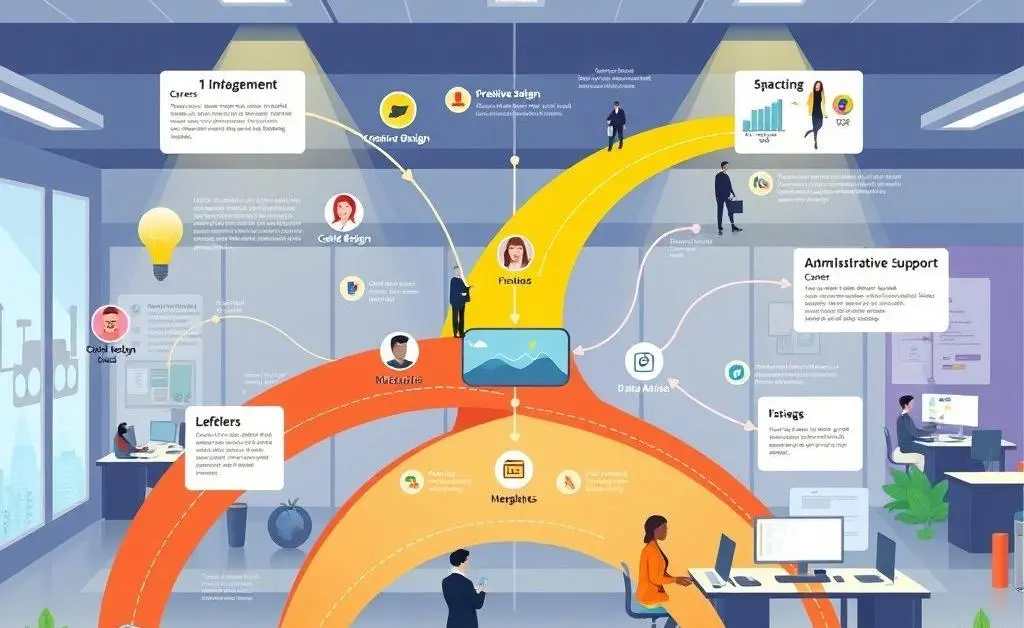Navigating Career Progression: Tips for Climbing the Corporate Ladder
Unlock your career potential with these proven strategies for advancement.

We all dream of reaching new heights in our careers, but the path to getting there can often feel like navigating a maze. Whether you're just starting out or looking to move up, understanding how to effectively climb the corporate ladder is crucial. Here, I'm sharing some insights and strategies that could help you on this journey.
Understanding Career Progression
Career advancement isn't just about moving up the hierarchy. It's about growing your skills, expanding your network, and finding roles that offer more responsibility and fulfillment. Your first step in climbing the ladder is understanding that your journey might not look like a straight line. Instead, it may involve lateral moves that set you up for future vertical climbs.
Setting Clear Career Goals
One of the most important steps in career progression is setting clear goals. Ask yourself: where do you want to be in one, five, or ten years? Knowing your destination helps in charting your course. Once your goals are clear, you can identify the skills and experiences needed to get there.

The Role of Mentorship
Mentorship can be a game-changer in your career. A mentor helps by providing guidance, sharing experiences, and opening doors to opportunities you might not find on your own. If you haven’t already, consider seeking out a mentor within or outside your organization—someone you admire for their career journey.

Building Your Skills
In today's rapidly changing job market, skills development is critical. Continually improving and adding to your skill set not only makes you more valuable to your current employer but also prepares you for future roles. Consider online courses, certifications, or even taking on new projects at work that push you out of your comfort zone.

Networking: Your Secret Weapon
Never underestimate the power of a robust professional network. Attend industry events, join relevant social media groups, and connect with colleagues across departments. The more people who know about your skills and goals, the more likely opportunities will come your way.
Cultivating Resilience
The road to career success is rarely a smooth one. Learning to bounce back from setbacks is key to maintaining momentum. Remember, each challenge is an opportunity to grow and learn something new.
Conclusion
Career progression requires a blend of strategic planning, skill development, and networking. By setting clear goals, seeking mentorship, and continuously building skills, you can set yourself up for success. So, what step will you take today towards your career goals?




